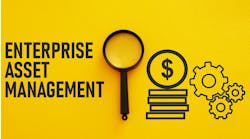Ecolab helps industrial users tackle water challenges
By Karen Langhauser
Our world is standing on the precipice of a water crisis. By 2030, the world’s demand for fresh water is expected to exceed available water supplies by 40%. The World Economic Forum’s 2017 Global Risks Report ranks “water crises” at number three on the list of the top 10 global risks in terms of impact.
The global population is surging and, consequently, water demands are growing. This is especially problematic because water supplies are not increasing.
“The world doesn’t make new water. All the water that we have is already here,” reminded Julie Lindley, marketing director, total water management and commercial digital solutions, for Ecolab’s Nalco Water division, during her presentation at Smart Industry 2017.
The vast majority of this water (97.5%) is salt water, which means it can’t be used in industrial processes without being treated. Of the 2.5% of freshwater, the majority is frozen in glaciers and icecaps, leaving less than 1% of the world’s water available for use, Lindley explained.
Industrial production processes depend on water. It is estimated that industry accounts for about 20% of the total water use in the world. Much of the increase in water demands in the next 15 years will come from industry. Industrial growth in a water-constrained world will require both a shift in mindset and practices.
Ecolab works with industrial customers to help them figure out how to minimize fresh water use while also improving operations. One mindset that needs to change, explained Lindley, is the belief that conserving water negatively impacts an operation.
“Traditionally, industrial customers feel like that have to choose—they believe that if they save water, it will somehow hurt their bottom line. Our mission at Nalco is to figure out how this can be an ‘and’ rather than an ‘or.’”
In order to accomplish this, it’s imperative that industry shifts its thinking from viewing water as a consumable good to seeing water as a recyclable asset.
At what price water?
Part of the problem is that water is undervalued and underpriced as a resource. In areas where water is cheap to consume, there exists little incentive to do anything about water use unless industry reaches the point where it runs out of water. Consequently, despite the scarcity of water, businesses tend to overlook water use as a method of cost savings. The existing disconnect between the market price and value of water makes it difficult for businesses to justify investments in water reduction and recycling strategies.
To operate successfully in a water-scarce environment, industrial companies must start integrating water management into business strategy and planning. The first step is education: industry needs to understand that water scarcity is an issue that warrants attention.
To this end, Ecolab offers a “Water Risk Monetizer”–a free, publicly-available online tool to help companies better understand the full value of water to their operations. Designed by Ecolab, Microsoft, and Trucost, the financial modeling tool utilizes the cloud, IoT and machine learning to transform water management, enabling businesses to factor current and future water risks into planning.
The tool provides another layer that industry can add to business strategies when it comes to making decisions, such as where to break ground on a new plant. The tool will help businesses assess incoming and outgoing water risks as well as the potential revenue at risk if operations were halted due to lack of water. Ecolab has found that putting a dollar figure to risk helps communicate the importance of water management to company decision-makers.
But while the Water Risk Monetizer tool helps customers get to a point where they understand the need to recycle and reuse water, recycled water then creates additional risk.
“As you recycle water, there are contaminants and impurities in the systems and they cause scale and corrosion issues as they run through assets and pipes. This can lead to downtime or assets wearing down sooner they should. As we recycle more water, it can cause more process upsets if it not properly handled or treated,” said Lindley.
In order to address the issues associated with recycled water, Ecolab has developed sensors that can read the quality of water in a customer’s pipes. The company is aggregating and analyzing 27 billion data points per year, fed from Ecolab sensors in 36,000 water systems deployed worldwide, to deliver real-time insights that help inform faster, smarter decisions and better water management.
For Ecolab, these digital solutions help customers complete the journey from merely collecting data and insights to taking value-driven action.
“Digital is an enabler to help you figure out how to close that loop and drive actual value. With cutting-edge technology, we are able to detect the problem, determine the solution and, most importantly, deliver the value,” said Lindley.
Modern day industrial automation leveraged by companies such as Ecolab is helping industries worldwide not only understand, but tackle water scarcity, while also improving their business’ bottom line.




